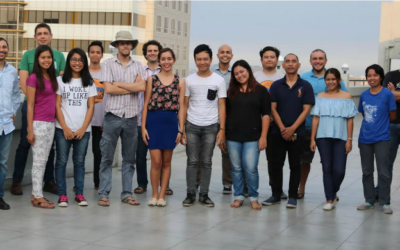Tejas Networks fixes price band of Rs 250-257 for IPO
Tejas Networks fixes price band of Rs 250-257 for IPO.
Tejas Networks Ltd said it has fixed the price band between Rs 250 to Rs 257 per equity share for its proposed initial public offer (IPO).
The company is making an initial public offering of equity shares of face value of Rs 10 each for cash comprising of a fresh issue of equity shares aggregating up to Rs 450 crore and an offer for sale of up to 12,711,605 equity shares through offer for sale, it said in a statement.
The offer opens on June 14 and closes on June 16.
Tejas Networks designs, develops and sells high-performance and cost-competitive products to telecommunications service providers, internet service providers, utility companies, defence companies and government entities in over 60 countries.
The company proposes to expand its business by adopting a series of strategies, it said.
The company has R&D centres in Bengaluru, Mumbai and Gurugram.
The Book Running Lead Managers (BRLMs) to the offer are Axis Capital Limited, Citigroup Global Markets India, Edelweiss Financial Services and Nomura Financial Advisory and Securities (India).
Eris Lifesciences IPO launch on 16 June
Eris Lifesciences IPO launch on 16 June.
Private equity firm ChrysCapital, which holds a 16.25% stake in the company, will sell all of its 22.34 million shares, while founder Amit Bakshi, who holds 39.97%, will sell his 0.5% stake.
Eris, which filed its share sale prospectus with the Securities and Exchange Board of India in February, received the regulator’s approval in May.
Axis Capital, Citibank and Credit Suisse are the bankers to the issue.
For ChrysCapital, an active investor in the Indian pharmaceutical and healthcare space, Eris Life IPO will give another exit with a good return.
ChrysCapital, which invested about Rs200 crore in Eris in 2011 for a 16.25% stake, will make about Rs1,400 crore through its exit, reaping seven times return, said the first of the persons cited earlier, on condition of anonymity.
In May 2015, ChrysCapital sold its entire 11% stake in Mankind Pharma to Capital International Private Equity Fund at close to 10 times the value of its original investment.
ChrysCapital had invested $24 million in 2007 for the stake.
In November 2014, ChrysCapital sold a 10.2% stake in Intas Pharma to Temasek Holdings Pte Ltd at close to 10 times the value of its original investment.
Recently, Mint reported that ChrysCapital part-exited its investment in Intas Pharma by selling about 3% in the company for $107 million to Capital International Private Equity Fund.
IDG Ventures, Unilever and AWS team-up to invest in early-stage Indian startups
IDG Ventures, Unilever and AWS team-up to invest in early-stage Indian startups.
Venture capital firm IDG Ventures India Advisors, has partnered with Unilever Ventures Ltd and Amazon Web Services Inc. (AWS) to launch an initiative to invest in startups.
Uniliver Ventures is the venture arm of consumer packaged goods company Unilever Plc, while AWS is one of the largest cloud infrastructure service provider globally.
The newly formed team will invest between $500,000 and $5 million in early-stage tech start-ups of India.
Speed becomes our competitive edge.
Our whole organization is geared to do the tech evaluation and the investment decision at twice the pace of the industry in this programme.
While the team’s initiative has been announced, none of them has revealed the number of investments they intend to make or the money that has been set aside for this programme.
Interestingly, Unilever Ventures is also an investor in IDG.
IDG Ventures India executive director Karan Mohla, said, Unilever Ventures invests in companies but also brings a lot of knowledge around branding, consumer insights and supply chain.
The venture capital firm IDG Ventures was launched in 2006 by Sudhir Sethi and T.C.
Reliance Nippon Life AMC plans IPO, to dilute 10% stake initially
Reliance Nippon Life AMC plans IPO, to dilute 10% stake initially.
Himadri Buch Moneycontrol News Reliance Nippon Life Asset Management (RNAM) has got approval from its board of directors for an initial public offer of AMC subject to necessary regulatory and corporate approvals.
The proposed listing will be in FY18 and initially, the AMC will dilute merely 10 percent. “Initially we will be listing 10 percent and as per the SEBI (Securities and Exchange Board of India) guidelines over the next 3 years which is 2021, we will be going up to 25 percent,” said Sundeep Sikka, ED and CEO, Reliance Nippon Life Asset Management details on valuations.
It could be the first initial public offering by a major asset management company (AMC) in India though smaller rival UTI MF’s IPO plans have been in the works for a long time.
Reliance Nippon Life Asset Management is a subsidiary of Reliance Capital with Nippon Life Insurance Company as its strategic partner.
We believe the IPO will help us both for organic and inorganic opportunity which will come in near future.”
Sikka also said discussions with merchant bankers, lawyers and auditors for IPO process will be initiated soon.
RNAM will be the first among top 3 players in the AMC industry for listing.
RNAM is among the largest asset manager in India managing assets of Rs 3,58,059 crore including MF assets under management (AUM) of Rs 2,10,891 crore as of March 31, 2017.
Gamer chat tool Discord secretly raised ~$50M as insiders cashed out
Gamer chat tool Discord secretly raised ~$50M as insiders cashed out.
After pivoting to a voice and text chat tool for video game teams and trash talkers in 2015, Discord’s current trajectory makes it one of few consumer-facing companies that’s now reaching “escape velocity,” as one of its early investors gushes.
Now Discord is aiming to become the communication layer for gaming, as it recently closed a competitive financing round.
When pressed for comment TechCrunch’s report, Discord confirmed to us that it had raised a funding round earlier this year, and provided this statement from CEO Jason Citron: “We are extremely proud of the impact Discord is making and the progress of our mission to connect people around their love of gaming.
This has resonated with our community and also the investment community who see the value in what we are creating.
Another source notes that Discord enabled its early employees to sell their shares to ensure that everyone’s interests are aligned.
This same source calls Discord’s CEO a mobile gaming pioneer, noting that Citron previously founded, then sold, the mobile-social gaming network OpenFeint for $104 million, roughly a quarter of which landed in his pocket.
And then there’s Amazon’s game-streaming juggernaut Twitch, which last year joined the battle to control this same communications layer by acquiring a direct competitor to Discord called Curse.
The cash adds to Discord’s $29 million in confirmed raises plus more undisclosed funding.
Operating all the free voice chat servers, and paying top game streaming celebrities hefty sponsorship fees to keep their communities on Discord is surely getting expensive.
SECP extends PSX bookbuilding by one day for initial public offering
KARACHI: The Securities and Exchange Commission of Pakistan (SECP) has extended the bookbuilding process of debut IPO of Pakistan stock exchange (PSX) by one day beyond the original deadline of June 7.
“All concerned are hereby informed that the Securities and Exchange Commission of Pakistan has allowed extension in time for the book building for offer for sale of shares of the Pakistan Stock Exchange Limited for one day i.e. upto Thursday, June 8, 2017,” the PSX said in a notice.
“Accordingly the eligible investors can now register until 3:00 pm and can bid until 5:00 pm on Thursday, June 8, 2017.” So far, the IPO of the country’s integrated bourse has received a very dismal response as bids for just over 45 percent of the offered shares were received in two days.
Although, the exact number of bids could not be known, officials involved in the process said bids for approximately 77 million shares had been received so far.
The shares of PSX are being offered to high net-worth individuals, institutional investors and the retail investors at a floor price of Rs.28/share.
The quantum of public offering is 160 million shares.
However, the 25 percent of the offer size i.e. 40.074 million shares will be offered to the retail Investors at the strike price determined through the book building mechanism and any shares that remain unsubscribed by the general public shall be allocated at pro-rata, to successful investors as per the book building process.
Sources said the bids received on the first day did not suggest that there would be any appreciation in the value of shares compared with the floor price of Rs28/share.
In December last year, PSX sold 40 percent strategic shares to a Chinese-led investors group that made the highest bid of Rs28/share for 320 million offered shares.
The consortium comprises of three Chinese exchanges — China Financial Futures Exchange Company Limited (lead bidder), Shanghai Stock Exchange and Shenzhen Stock Exchange.
Gunshot detection technology ShotSpotter soars 26% in public debut
Investors greeted ShotSpotter with a warm reception on Wednesday, on its first day as a public company.
Their sophisticated technology alerts authorities within 45 seconds of the trigger being pulled.
It’s currently used in about 90 cities, including New York, Chicago and San Francisco.
ShotSpotter estimates that about 80 percent of gun violence goes unreported, and they are in the process of convincing municipalities worldwide that their technology will reduce fatalities.
According to CEO Ralph Clark, it’s not just about catching assailants, but they hope to deter crime also.
ShotSpotter makes money by charging local governments on an annual subscription basis.
That is likely why the IPO was so small, raising just over $30 million.
They will be using some of the proceeds to pay down debt.
But they are optimistic they will expand to more cities, because clearly “gun violence is a fairly big problem in the U.S. and globally,” said Clark.
The Mountain View, Calif.-based company previously raised at least $67 million in funding.
Upbeat gets $1.5M to create a data science-driven alternative to PR agencies
Upbeat gets $1.5M to create a data science-driven alternative to PR agencies.
Out of all the how-to guides ever written about pitching journalists, I’ve never seen one address the truth—that most are simply too busy trying not to get murdered by their inboxes to even open emails.
Upbeat’s investors are Draper Associates, Maverick Capital, Kleiner Perkins Caufield Byers, FirstRock Capital, UpHonest Capital, Quest Venture Partners, SV Angel, 500 Startups, Stanford-StartX Fund, and Y Combinator.
“What’s interesting is by reducing the friction of engaging a PR agency, we make it easier for all kinds of stories to bubble up to the surface,” said Yean in an email interview.
Then Upbeat matches pitches to journalists with its algorithm, which considers data from a number of sources, including articles, tweets, and each writer’s past interactions with its other pitches.
“Rather than pitching you about diapers because of that one article you wrote in 2010 about the Diapers.com acquisition, Upbeat uses natural language processing to understand that you likely wrote about it because it was a big acquisition.” Like a lot of other journalists, I’m familiar with getting pitches based on old articles that I’ve forgotten writing about companies I usually don’t cover, so Upbeat’s premise sounds intriguing to me (even though the idea of having everything I’ve written run through latent semantic analysis is a tad disquieting).
“Of course, with all this vetting, targeting, and pitching, we definitely aim to get media coverage for every campaign, but PR is not transactional and it shouldn’t be,” said Yean.
Other tech startups tackling PR already include PressFriendly and Publicize.
“Technologists did a lot of infrastructure-level work to help online advertising go the way of the exchange and help us trust strangers enough to ask them to drive us around or let us stay in their house.
We think we’re doing similar infrastructure-level work with Upbeat for media and PR to exchange stories.”
This NYC Startup Just Raised $5M to Revamp The Way in Which You Buy Insurance
Have any questions about what Bond Collective can offer your company?
A previous graduate of Startup Health, the startup offers a suite of broker and carrier shopping tools so that the process of obtaining health insurance is efficient and accurate for individuals and small businesses.
Wellthie is an insurance technology company that offers leading broker and carrier shopping tools that simplify insurance distribution and optimize insurance choices for small businesses and individuals.
Like the Zillow of health insurance, Wellthie uses advanced algorithms, best-in-class user experience, and licensed broker support so that brokers using Wellthie can multiply their market opportunity while increasing consumers’ access to health insurance.
Regardless of how regulation unfolds in the coming months, Wellthie provides the much needed navigation, comparison shopping, and support that small businesses and individuals need to make the optimal choices about their health insurance.
Wellthie targets the $100B+ small group insurance market, where 55 million small business employees rely on 500K brokers to buy health insurance.
It has also been increasingly the center of technology innovation.
What was the funding process like and what challenges did you face?
What factors about your business led your investors to write the check?
Have any questions about what Bond Collective can offer your company?
This NYC Startup Raised $750K to Prevent this Debilitating Disease
Who were your investors and how much did you raise?
Blue Mesa Health delivers a science-based, technology-enabled digital diabetes prevention program to prediabetic individuals.
The program is aimed at reducing the risk of developing Type 2 Diabetes.
I felt drawn to leverage my experience in product and in mobile across a variety of industries to help others change their behavior and prevent chronic disease.
We coach their employers, plan members, and patients to reduce their risk for Type 2 Diabetes.
We earn our fee in delivering our behavioral change program in a pay-for-performance model, meaning we get paid when participants actually engage with the program and lose weight.
What should everyone know about diabetes?
What are the biggest challenges that you faced while raising capital?
What advice can you offer companies in New York that do not have a fresh injection of capital in the bank?
In the near term (next few months) we are going to help over 2,500 people reduce their risk for type 2 diabetes.
Online learning startup Coursera raises $64M at an $800M valuation
Online learning startup Coursera raises $64M at an $800M valuation.
Coursera’s CEO Rick Levin (who notably joined the company after a period as president of one of the more prestigious institutions of the old educational guard, Yale University) told me that the company plans to use to accelerate its business in three areas: developing new technology in areas like artificial intelligence to improve and personalise the learning experience; to expand its range of full online degrees (versus short courses and one-off classes); and to continue building out one of its newer areas, targeting non-profits and businesses and their own corporate development and training needs.
Levin told me that Coursera is not disclosing its valuation in this round, but I have confirmed with sources close to the company that it is around $800 million — a significant uptick from Coursera’s previous round, which valued it around $500 million.
I’ve known about it for a couple of days while planning this story, but late last night I received a hurried note telling me it actually went up as Coursera added a new investor at the last minute.
The full list of investors is an impressive one.
It includes GSV Asset Management, New Enterprise Associates (NEA), Kleiner Perkins Caufield Byers (KPCB) and Learn Capital, all existing investors.
The Lampert Foundation — prominent in health and education philanthropy — also participated as a new investor.
The funding comes as Coursera, founded in 2012, has clocked up 26 million registered users across its different courses and other offerings: these include 2,000 courses in 180 specialisations; master’s degrees in business, computing, innovation and accounting; and courses for enterprises and non-profits.
It also has 150 university partners.
The majority of that 26 million today are part of the company’s short course efforts, but Levin said the newer programs are growing fast and the company expects these to become more substantial over time.
Reliance Group plans MF unit IPO; may get Rs20k cr valuation
Reliance Group plans MF unit IPO; may get Rs20k cr valuation.
Anil Ambani-led Reliance Group plans to come out with an initial public offering for its mutual fund arm, which is expected to value the company at about Rs 20,000 crore.
It could be the first initial public offering by a major asset management company (AMC) in India though smaller rival UTI MF’s IPO plans have been in the works for a long time.
Typically, asset management companies are valued at 5 per cent of AUM, which is likely to value Reliance MF at about Rs 20,000 crore and a 10 per cent stake sale could fetch Rs 2,000 crore, analyst and market sources said.
As per markets regulator Sebi’s listing norms, the company has to dilute a minimum of 10 per cent to list on stock exchanges which will increase to 25 per cent in three years. “Along with further consolidations happening in economy we would like to be ready to take advantage of suitable acquisitions,” he added.
Reliance Nippon Life Asset Management is a subsidiary of Reliance Capital with Nippon Life Insurance Company as its strategic partner.
RNAM offers a well-rounded portfolio of products that meet varying investor requirements and constantly endeavours to launch innovative products and customer service initiatives to increase value to investors.
(This article has not been edited by DNA’s editorial team and is auto-generated from an agency feed.)
Sponsored 15 Makeup Tips All Older Women Should Know (Tips) 15 Life-Changing Makeup tips you’ll wish you knew earlier [tips with photos] Learn More Sponsored by Choice Weekly Report ad
Singa, a startup out of Helsinki, scores €1.75M seed round to build the ‘Spotify of karaoke’
Singa, a startup out of Helsinki, scores €1.75M seed round to build the ‘Spotify of karaoke’.
And where markets are big, startups like to go.
“Over my 10 years in the karaoke industry running Karaoke World Championships, I worked with big and small karaoke companies all over the world, from Asia to the U.S., and gained insight into the industry and saw that while most other entertainment media were moving towards streaming, karaoke was still stuck in the 90s,” Singa co-founder and CEO Atte Hujanen tells me.
In terms of competitors, the Singa CEO notes that YouTube is the world’s largest source for karaoke related content, but says that 99 per cent of the content is illegal or un-licensed at best.
Smule, the heavily-funded San Francisco-based startup, has also seen success in the mobile karaoke space, while Israel-based Yokee has developed a similar offering and just recently sold to Canadian Stingray Digital for approximately $40 million.
Chinese karaoke app Chang-Ba is a major local player and currently boasts around 30 million monthly active users.
Adds Hujanen: “The only thing we care about is providing the best singing experience.
We don’t focus on gimmicks, rather we wake up every day thinking how the singing experience can be improved.
For instance, we are the only one’s who have truly digitized karaoke and gotten rid of the cringeworthy clichés of “old school” karaoke videos and graphics.
Our content is rendered in realtime, which means it’s always optimized whether you’re singing off your 70” 4k television or the screen on your internet connected toaster”.
BEAM launches new platform to help startups raise funds, aims to get more private investors involved in startup funding
BEAM launches new platform to help startups raise funds, aims to get more private investors involved in startup funding.
Called Dealflow, BEAM said that there are currently more than 30 venture capital and investment firms joining the platform Malaysia-based platform and events management company BEAM announced the launch of their new platform Dealflow, which aims to simplify fundraising and investment process for both investors and startups.
Coming in form of a mobile app and a desktop site, through Dealflow, users can directly submit pitches to venture capital and investment firms.
Currently there are over 30 institutional investment firms on board, and Ho said that the list is growing.
“We’ve just opened it to individual investors (angels) today and we expect to hit several hundred to thousands by the end of next week.
It’s hard to gauge by the end of the year, but we expect to have covered most of SEA by then,” he said.
“For every second of time saved, the closer we move to real progress, especially in this part of the world,” he added.
With the launch of the new product, BEAM said that it aims to enable more private investors to “play a more active role” in backing and funding early stage companies, noting regulatory factors and a lower amount of institutional investors available within Malaysia and many parts of the Southeast East region.
The company has been actively collaborating with the Malaysian government and equity crowdfunding companies to provide greater access to capital for SMEs to scale and go digital.
— Image Credit: BEAM
Why Startups Shouldn’t Chase Media Buzz
Though the site lives on as a network for artists and creators, most of the users who came hoping for an alternative to Facebook quickly left.
Ello’s story shows what can happen when a startup achieves media success that outpaces its progress in other areas.
While Theranos may be an extreme example, most founders would give an arm for similar (and similarly fawning) media coverage.
They know publicity can be an important early signal of a business’s progress, helping attract the customers, partners, employees, and investors the company needs to take off.
Research backs this up: one study of technology startups found that more coverage in industry media early in a company’s development was associated with receiving greater levels of venture capital funding later.
We studied 60 venture-capital-backed companies and found that those that eventually achieved successful outcomes for investors tended to attract more media coverage along the way.
When founders drive media coverage too early, they may not be able to deliver on their promises to customers.
Another important tip for early-stage startups: don’t waste money on a public relations firm or staffer.
But ultimately nobody is better at telling your story in the early days than you are.
While every company needs a media strategy to create awareness and demonstrate traction, it’s only one piece of the puzzle.
Tulip, the app platform for manufacturers, picks up $13 million from NEA
Tulip, the app platform for manufacturers, picks up $13 million from NEA.
But Tulip, a software platform for shop engineers, operators and managers, is looking to change all that.
As part of the deal, NEA partner Dayna Greyson will join the company’s board of directors.
That includes clipboards, stop watches, and Excel spreadsheets, which are far from real time and simply collect troves of manually input data without pulling insights automatically.
Folks unfamiliar with this type of software (like shop floor operators and engineers) are able to plug and play various ‘If/Then’ situations to get a birds’ eye view of problem areas on the floor and fix them immediately.
A sensor at a specific workbench, or on a specific tool, or a camera on the assembly line can automatically detect what’s happening during the entire process and help managers refine the process without all that manual data collection and entry.
Tulip – Station “In a way, we’re enabling these operators, engineers and managers to do what the information workforce takes for granted,” said Tulip CEO and founder Natan Linder, who built Tulip as a spin-out of his MIT research around interfaces.
“And beyond that, Tulip turns work into a sort of game, with the mechanics of a leaderboard, and generates the sort of dynamic that lets employees be informed about their own performance.” Tulip says that analysis by Deloitte found that Tulip increased production yield by more than 10 percent and manual assembly quality issues decreased by 60 percent in the first four weeks of operation at global manufacturer Jabil.
Though the company isn’t disclosing its full pricing, Tulip charges its clients through a SaaS model on a per/bench basis.
Tulip plans on using the new investment to grow product, design and research team, as well as building out customer support.
Shortlist raises $1.5M to help businesses manage their freelancers
Shortlist raises $1.5M to help businesses manage their freelancers.
Shortlist wants to make this process more efficient by offering a single platform for managing and paying freelancers and independent contractors.
The company, which was founded in 2015 by Martin Konrad (CEO) and Joey Fraiser (COO), today announced that it has raised a $1.5 million seed round from Impulse VC, FundersClub, Alchemist Accelerators and a number of angel investors, including Cisco’s VP on Innovation Maciej Kranz.
At the core of Shortlist is a company’s own curated list of freelancers.
The company’s current set of customers includes the likes of Publicis Groupe, CBRE, Hays, Roche, AKQA and Western Governors University.
It’s currently seeing 20 to 30 percent growth in customers month over month and its users now manage over 25,000 contractors on its platform.
Konrad told me that the team plans to use the new funding to continue to work on its product and especially to improve its payouts and payments product.
Even today, though, Shortlist already includes tools for invoicing, payments and access to tax forms (think 1099s and W9s), as well as a time sheets feature and an analytics tool that employers can use to track their freelance workforce.
The team recently graduated from the Alchemist accelerator program, which focuses on B2B companies.
Featured Image: Lewis Mulatero/Getty Images


















